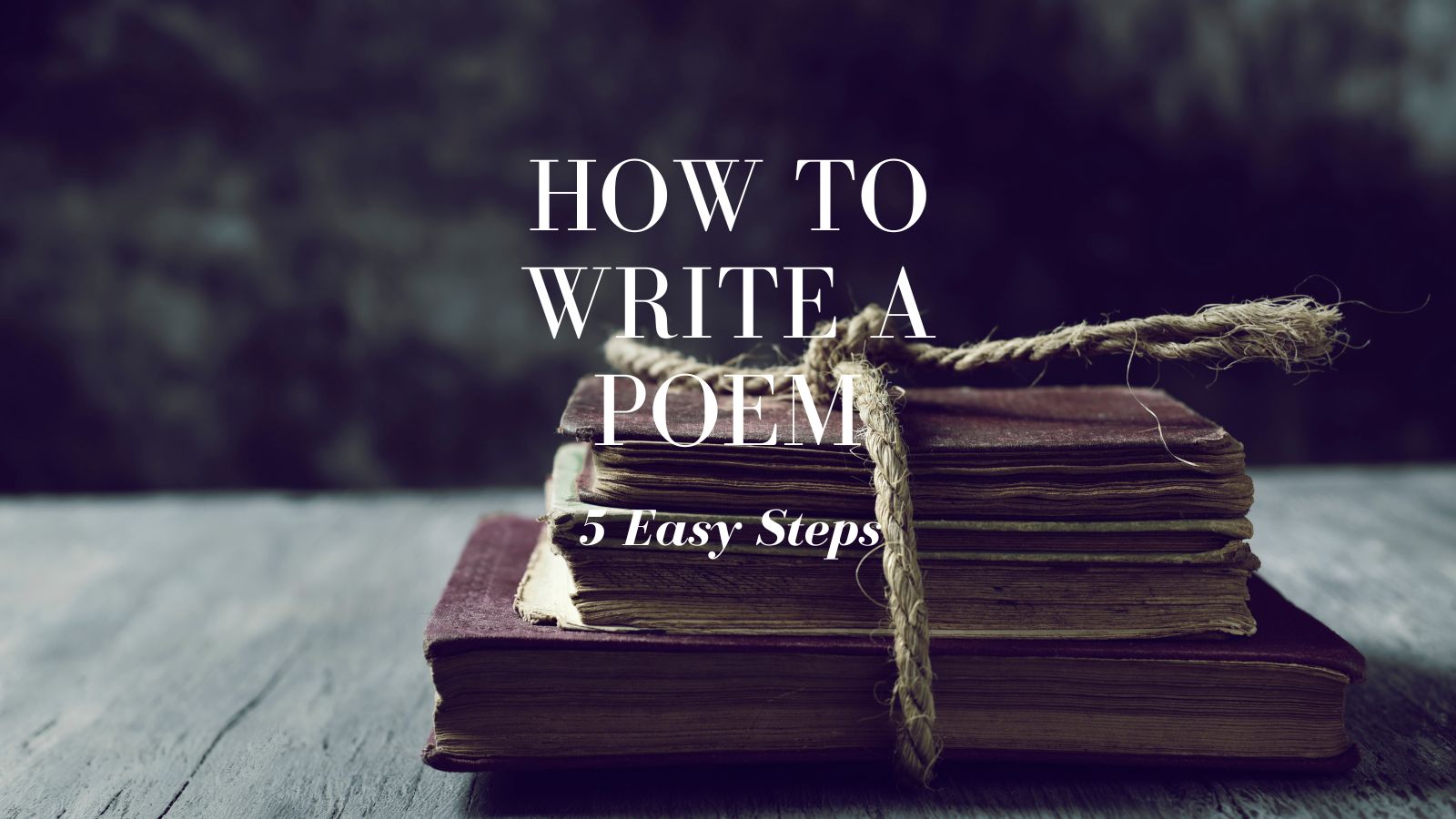How to write a poem in 5 easy steps
Writing poetry is both really hard and really easy. If you want to write poetry, go with your gut feeling. Writing great poetry, though, is very very hard. If you want to write GREAT poetry, you need to read and study a lot of poetry. If you are a ‘NEW” poet or just feeling unsure about your writing or poetry, please check out my article on “How to be a Poet.” It might answer other general questions about poets and their relationship to the world. Here are the steps I go through to write a poem. I’ve been writing poetry for over 30 years; again, see this article for more information on me and my writing.
I believe 100% that writing poetry is about going by feeling, reading, and learning. It’s personal. There is no RIGHT WAY to write a poem, so please take what I’m saying as friendly reassurance or a breakdown of my process. Everyone’s process can be different. The following steps will get you to a finished poem.
1 Get inspired
I get inspired by anything in one of my writing seasons (it can be any time of year). If I get stuck or need help, I do one of 2 things. 1. I go to a place that is bustling with activity. I love train stations and coffeehouses. 2. I read poems I love. When I’m heavily writing, I’ll carry ten or more books of poetry with me and just randomly read out of them.
2. Get it down on paper.
So to write a poem, start writing. Don’t worry about punctuation or line breaks or anything like that. Just get it down on paper. Whatever you feel is essential, whatever words you are trying to say, get it down on paper. I always try to start with an image. I use that image throughout the poem.
3. Break the lines first.
After finishing the paragraph or poem, break up the lines. You can write it as prose if you want to start that way.
Every line in a poem holds its meaning. For example, William Carpenters’ poem “Girl Writing a Letter” starts with the line.
A thief drives to the museum in his black van. The night
In this line, Carpenter makes his black van the night. The poem contains magical realism, where a girl in a painting comes to life, and the poem’s first line represents this by making the thief’s van into the night. Notice you can read the line to have different meanings. In prose following the punctuation, we’d never infer the van being the night, but because of the line break, we get more meaning.
So break your lines to get the most meaning. If you can make a line mean more by breaking it into one word, do that. There is a lot more to this, but this is a start. Just break the lines in places that both sound and feel right, and that adds meaning.
4. Punctuation Add in your punctuation
You can decide how you want to use punctuation in your poetry. You can avoid it. You can write it like regular sentences and use it for inflections. Whatever you decide, stay consistent. Punctuation is crucial in poetry. It can have all kinds of meanings. I won’t get deep into punctuation here, but as you divide up lines and create pauses pay attention to clauses and pauses. How you read poetry sounds is as important as how it is written on the page.
5. Edits
At this point, you have all the pieces in place. Go through your poem over and over. Read it again and again. Read it out loud. Does it sound the way you want it to sound? Craft the meaning. It means you may change words, look for synonyms and create parallels. All of these things can happen in edits. Poetry is sculpting. In sculpting, you get the general outline, and then you do the hard work of the details. Poetry works the same. Start vague and work your way into the details. You can think of finding it as a relic in the desert. First, you break off the big chunks of dirt. Then you want to remove smaller pieces softly, and then you want to get out the delicate tools, the tiny brush, and pick and gently brush the dirt off.
These are the five basic steps you need to write a poem. Everyone has a different process, but these steps will get you to a finished product. Reading and studying is the difference between creating a poem and creating a “great” poem. Write a lot and read a lot of poetry. That’s always the best advice.
If you are writing poetry and want some reassurance or confirmation of poetry today, please read How to be a Poet. I hope this article helped. If you have any questions, please post them in the comments below.
- 100 Screenwriting Ideas to Get You Writing - January 20, 2026
- 100 Winter Storm Writing Prompts - January 17, 2026
- 100 Haunted House Story Starters: Craft Your Scariest Tale Yet - January 10, 2026





1 thought on “How to write a poem in 5 easy steps”